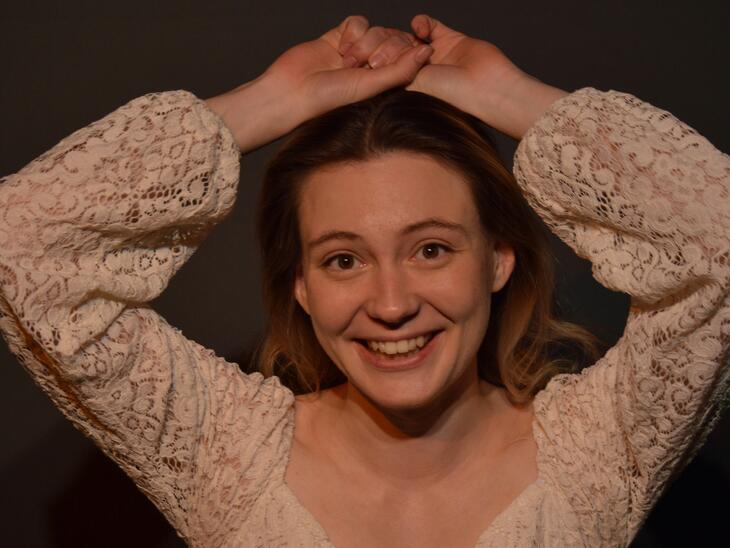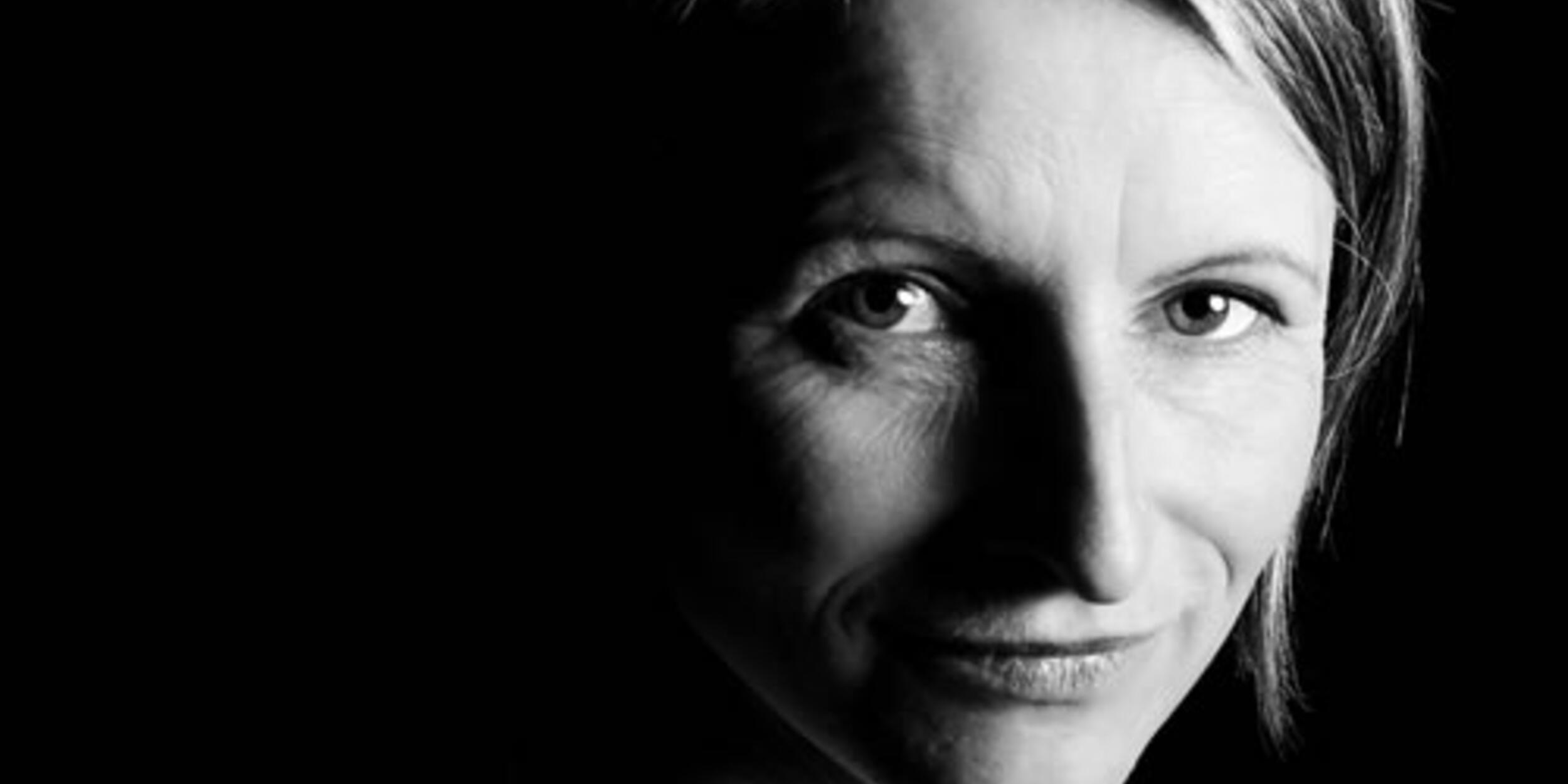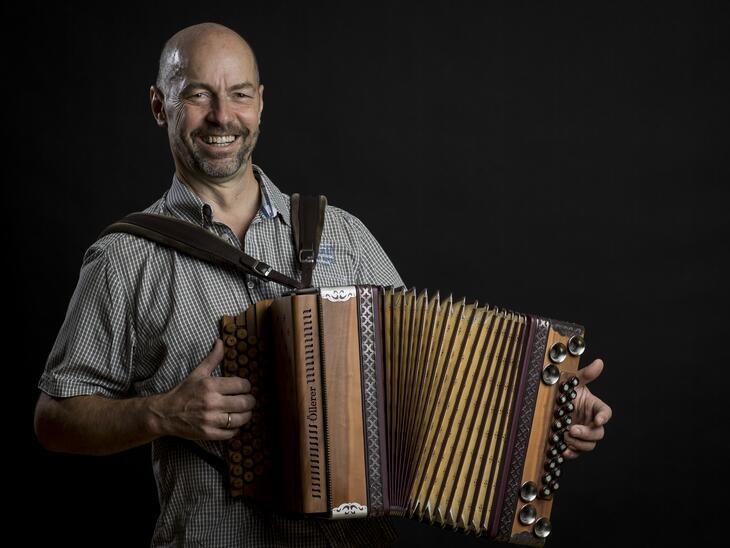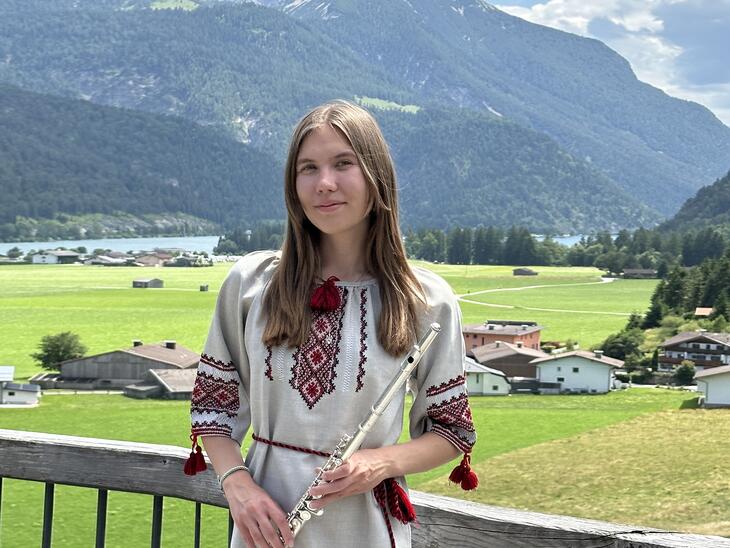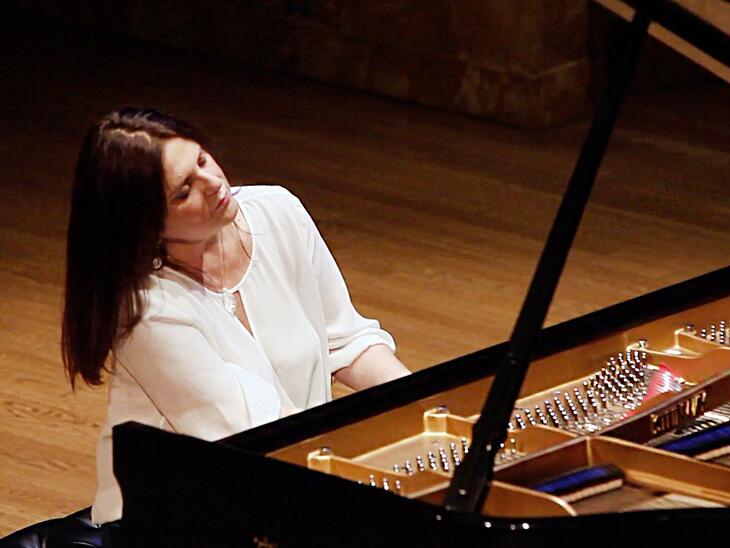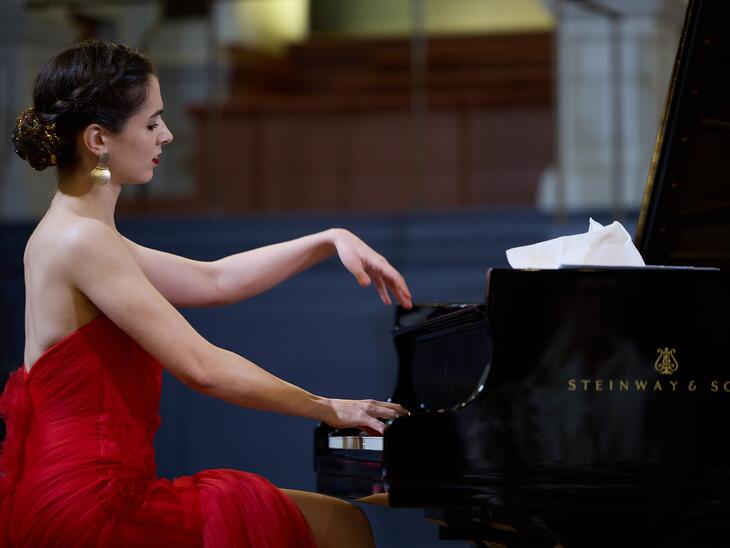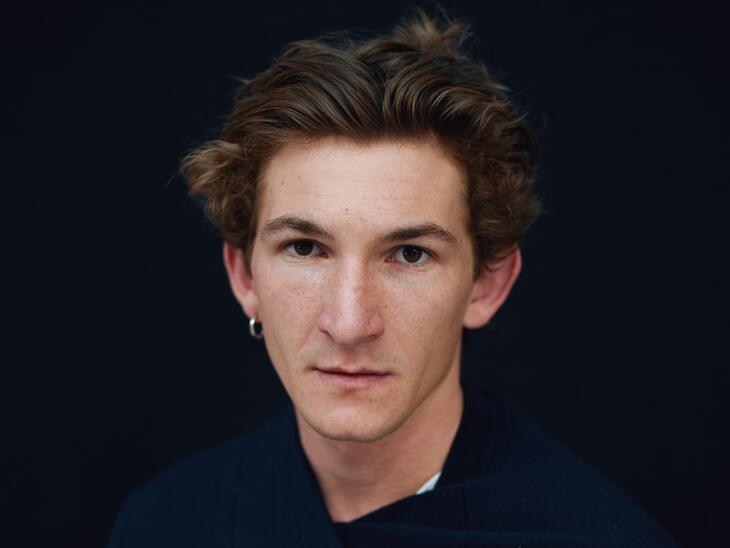Ms. Glücklich, you work with cultural banners that have already fulfilled their purpose and put them to a new use. In addition, you work with "old materials". You work with existing resources. How did this come about?
I started with the cultural banners during my student days. Working with existing materials, on the other hand, has accompanied me since my childhood. I grew up in simple circumstances and was very stubborn, which led me to simply make things I wanted myself from things that were already available. I made furnishings out of vegetable crates and repurposed clothing so that I liked it. I guess that was sustainable, but unconsciously at first. There are just so many materials that are already there, so there's no need to use up new resources.
Does the issue of sustainability in painting also play a role for you?
In painting, I like to work with people. I process thoughts and feelings in my paintings. But textiles and wood are also important themes here.
You have registered a business as an artist. Your business is called "Atelier Stillos". Do you have to register a business as an artist?
If you want to sell something, you should already register a business (laughs). I sell my bags, which I create from culture banners, at arts and crafts markets, so of course I need this business registration.
Where do you exhibit your artworks and where can they be purchased?
For example, at the "FrauenKunstHandwerk" in Ottensheim, at the textile market in Haslach, in Anif at the women's art craft market and I also organize the market at the EmailWerk in Seekirchen in November.
What is the importance of materials for you?
The tarpaulins from the EmailWerk are very special to me because they convey the cultural so well and that is so important, especially in these times. We realize how important culture and art are for us. But it can also be other materials, you never know what will come. If other "things suddenly fly out at me," I'm sure I'll deal with them, too. I'm quite open about that.
Has Corona influenced or changed your work?
Not really. It was and is also a valuable time to focus on essentials. You realize again what is important to you, how important other people and cultural events are. A different kind of awareness emerged. Of course, the markets were and are limited.
What is the importance of sustainability and upcycling in the art and culture scene from your point of view?
It is a very important topic in all areas of life. There is no other way than to use the resources we already have instead of always producing something new. There are also cultural initiatives that no longer print advertising on paper in order to conserve resources, or artists who tour Austria by bicycle. A rethink is already taking place in all areas. The awareness is there and there will certainly be a lot more development. It is also possible that we will fail a time or two. That, too, is important so that something new can emerge. It is a process that is sure to continue and also has hope as a strong theme.
In addition to your artistic activities, you also work with young people. You are a specialist trainer in the "Ausbildungsfit STEP4" project. What does your work consist of?
In the project, I work with young people in the T-shirt and design workshop. The aim of the project is to help young people become fit for training. There are very different topics that young people have to catch up on or continue working on. I go through work steps with the young people. I show them what they can create when they develop a design themselves. It's important to see and experience the work process, to do something with their hands. To start something, to build self-confidence to be able to go their own way. I currently supervise 15 young people who are with us for an average of one year. Unless they find an apprenticeship sooner.
What advice would you give students when you think about your time at university and the work process today?
Especially in the creative field, ECTS points should not be the primary goal. Rather, you should put enough time into projects to achieve great results. Calmly try out crazy ideas, allow "not succeeding" because this can give rise to completely new ideas. This is how development can take place. I like to remember very intensive projects in my student days. A project on the topic of "Baroque" almost didn't come to fruition because we already didn't believe in it anymore. Many sleepless nights later there was a very great result. One thing always leads to another, you just have to be persistent and open to new things.
